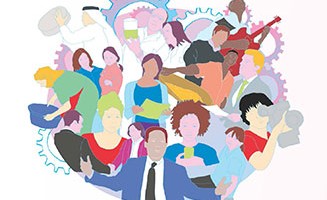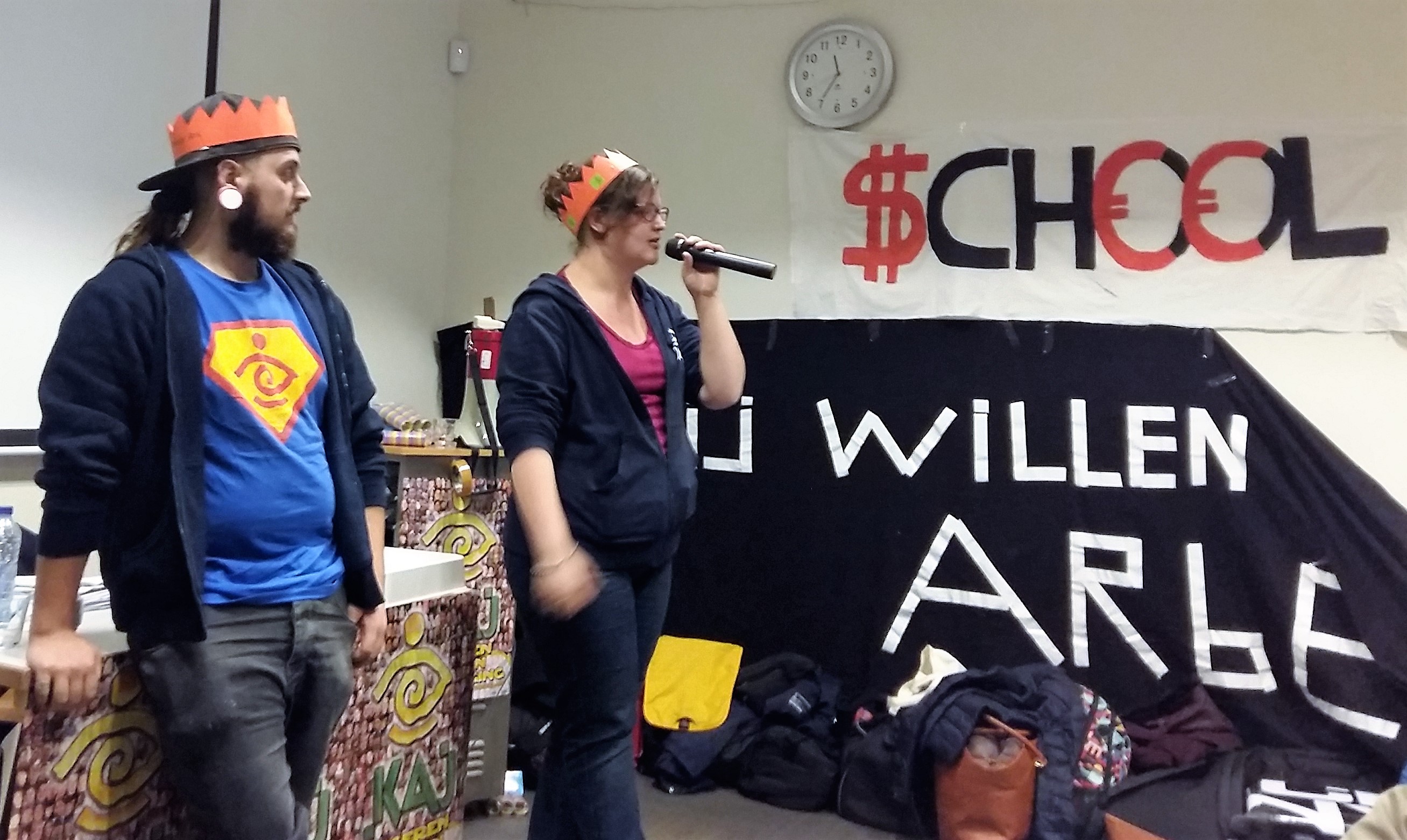 The 2016 International Conference of Non-Governmental Organizations (NGOs) in partnership with the Unesco was held from 12 to 14 December in Paris. The conference focused on the theme “The challenge of the digital revolution for NGOs” and was organized around four subthemes: “The digital revolution and its impact on the diversity of cultural expressions”; “The challenge of access to digital information”; “Does e-learning address challenges of education systems worldwide?”; and, “Science and the digital revolution: which ethical implications?” The International YCW took an active part in it and made its contribution to the debate.
The 2016 International Conference of Non-Governmental Organizations (NGOs) in partnership with the Unesco was held from 12 to 14 December in Paris. The conference focused on the theme “The challenge of the digital revolution for NGOs” and was organized around four subthemes: “The digital revolution and its impact on the diversity of cultural expressions”; “The challenge of access to digital information”; “Does e-learning address challenges of education systems worldwide?”; and, “Science and the digital revolution: which ethical implications?” The International YCW took an active part in it and made its contribution to the debate.
The digital issue is at the very heart of social stakes, resulting in new developments, opportunities but also major challenges. Therefore, all social organizations, but also the society as a whole, will have to face it. According to the Unesco, « The digital revolution has fundamentally altered the way in which cultural goods and services are produced, distributed and accessed. Indeed, the accelerated expansion of social networks and user generated content (UGC), the explosion of data created by cloud computing and the proliferation of connected multimedia devices – smartphones, tablets, phablets, e-readers – in the hands of the users have had a huge impact on the cultural scene, in both the global North and South. Technological changes have led to the emergence of new players and new logics»[1].
During the conference, the IYCW insisted on the two components of the “digital revolution.” It underlined on the one hand the opportunities it offers to our social organization, whether through communication, exchange, the capacity of mobilization, the intensification of interaction, or in terms of visibility, and on the other hand the dangers and challenges it poses, such as surveillance and the creation of monopolies. Increasingly precarious working conditions, in particular for young people, the promotion of consumerism, and most of all the negative impact on social security and social protection, including in the field of participation and financing (unpaid taxes and security of workers in companies) are dangers facing the world of work.
At the Conference, we had the opportunity to meet several friendly organizations, including representatives of the International Young Catholic Students (IYCS), the Centre Catholique International de Coopération avec l’Unesco (CCIC), and the Consejo Latinoamericano de Ciencias Sociales (CLACSO).
For more information, please visit the Unesco website.

 The 2016 International Conference of Non-Governmental Organizations (NGOs) in partnership with the Unesco was held from 12 to 14 December in Paris. The conference focused on the theme “The challenge of the digital revolution for NGOs” and was organized around four subthemes: “The digital revolution and its impact on the diversity of cultural expressions”; “The challenge of access to digital information”; “Does e-learning address challenges of education systems worldwide?”; and, “Science and the digital revolution: which ethical implications?” The International YCW took an active part in it and made its contribution to the debate.
The 2016 International Conference of Non-Governmental Organizations (NGOs) in partnership with the Unesco was held from 12 to 14 December in Paris. The conference focused on the theme “The challenge of the digital revolution for NGOs” and was organized around four subthemes: “The digital revolution and its impact on the diversity of cultural expressions”; “The challenge of access to digital information”; “Does e-learning address challenges of education systems worldwide?”; and, “Science and the digital revolution: which ethical implications?” The International YCW took an active part in it and made its contribution to the debate.
